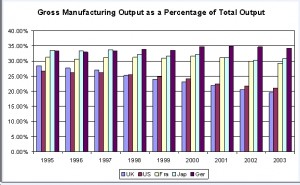 The recent events in Dubai, where the state owned fund “Dubai World” announced it needed an additional 6 months to repay some of its outstanding debt, caused shockwaves around the World echoing the problems of Lehmans 12 months ago. The impact was felt on stock exchanges from Hong Kong to Wall Street.
The recent events in Dubai, where the state owned fund “Dubai World” announced it needed an additional 6 months to repay some of its outstanding debt, caused shockwaves around the World echoing the problems of Lehmans 12 months ago. The impact was felt on stock exchanges from Hong Kong to Wall Street.
These issues illustrate just one of the impacts of increasing globalization. Undoubtedly there are many, many benefits – the ability to Outsource manufacture to cheaper locations brings down the price of consumer goods. Products once deemed exotic are readily and cheaply available in our Supermarkets. Clothing is cheaper than ever before. International communication has allowed relationships to develop over all of the continents breaking down cultural barriers and suspicions.
However, like anything else, there are downsides.
Sovereign Wealth Funds, controlled by State Oligarchs, have immense wealth and power at their disposal. Their decisions made in conference rooms in Beijing or Dubai can have devestating and massive impacts on jobs and prosperity in the U.K or elsewhere in the globe. These insitutions are not democratic in nature and are not answerable to any electorate.
How we in the “liberal” democratic World control and resist their impact remains one of our greatest challenges.
chris@projectsguru.co.uk

 Its common knowledge in the U.K that manufacturing has declined over several years but the attached graphic illustrates just how serious that decline is compared to other leading nations. The situation after the credit crunch is likely to paint an even grimmer picture.
Its common knowledge in the U.K that manufacturing has declined over several years but the attached graphic illustrates just how serious that decline is compared to other leading nations. The situation after the credit crunch is likely to paint an even grimmer picture.